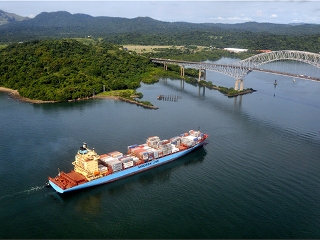 A.P. Moller-Maersk said today its container shipping arm Maersk Line made a profit in the first quarter of 2014 despite lower freight rates, which were offset by a pickup in volumes and a drop in unit costs.
A.P. Moller-Maersk said today its container shipping arm Maersk Line made a profit in the first quarter of 2014 despite lower freight rates, which were offset by a pickup in volumes and a drop in unit costs.
Denmark-based Maersk Line, the world’s biggest container shipping line, made a profit of US$454 million in the first quarter of the year, up from $204 million in the same quarter in 2013, according to an official company statement.
“The improvements, despite 5.1% lower freight rates, were achieved through 9.0% lower unit costs supported by lower bunker price and impairment reversal of USD 72m. Volumes increased by 7.3% to 2.2m FFE,” said the emailed release.
The conglomerate delivered a profit of $1.2 billion in the first quarter, up from $790 million year-over-year.
“The Group delivered a satisfactory result for the first quarter. Net profit improved by 51% driven by all five businesses except Maersk Drilling which delivered as expected in a quarter with two yard stays and intake of two new rigs,” said group CEO Nils S. Andersen.
On the outlook for the year, “Maersk Line has revised its expected result from being in line with 2013 (USD 1.5b) to being above the 2013 result, driven by improved operational performance and utilisation,” said the company. “The global demand is expected to grow by 4-5% and Maersk Line seeks to grow with the market.”
But it admitted that “pressure from excess capacity is expected to remain throughout the year.”
For the whole group, A.P. Moller-Maersk expects 2014 to yield earnings “significantly above” the 2013 result of $3.8 billion, which it said was buoyed by a $2.8-billion gain from the sale of Dansk Supermarked Group.
“The underlying result is now expected to be around USD 4.0bn (USD 3.6bn) when excluding discontinued operations, impairment losses and divestment gains,” it said.
“The Group’s outlook for 2014 is subject to considerable uncertainty, not least due to developments in the global economy, the container rates and the oil price,” it cautioned.




